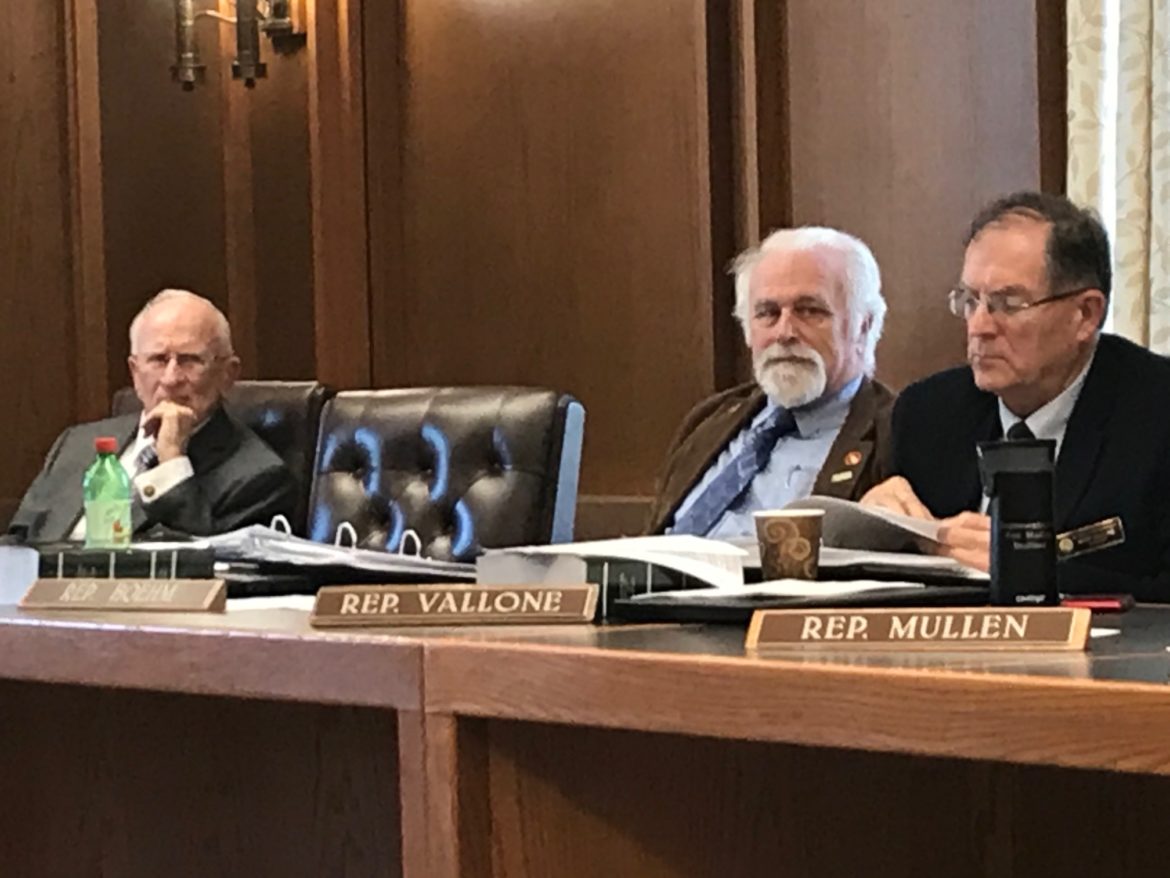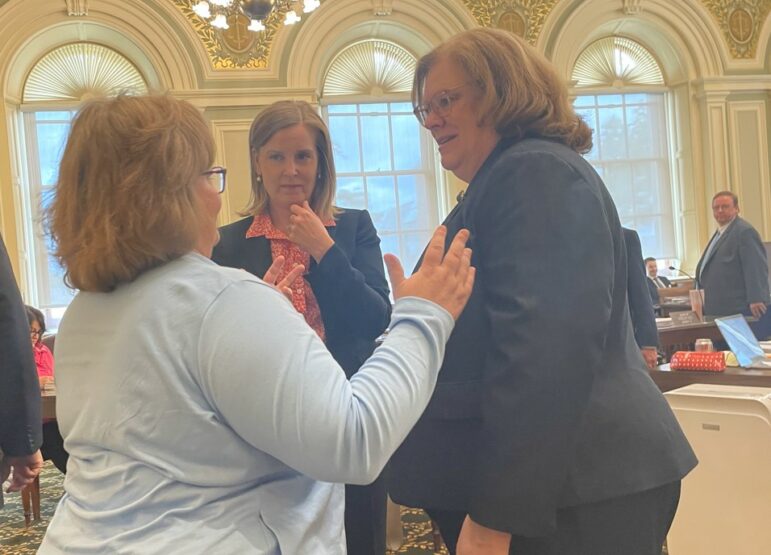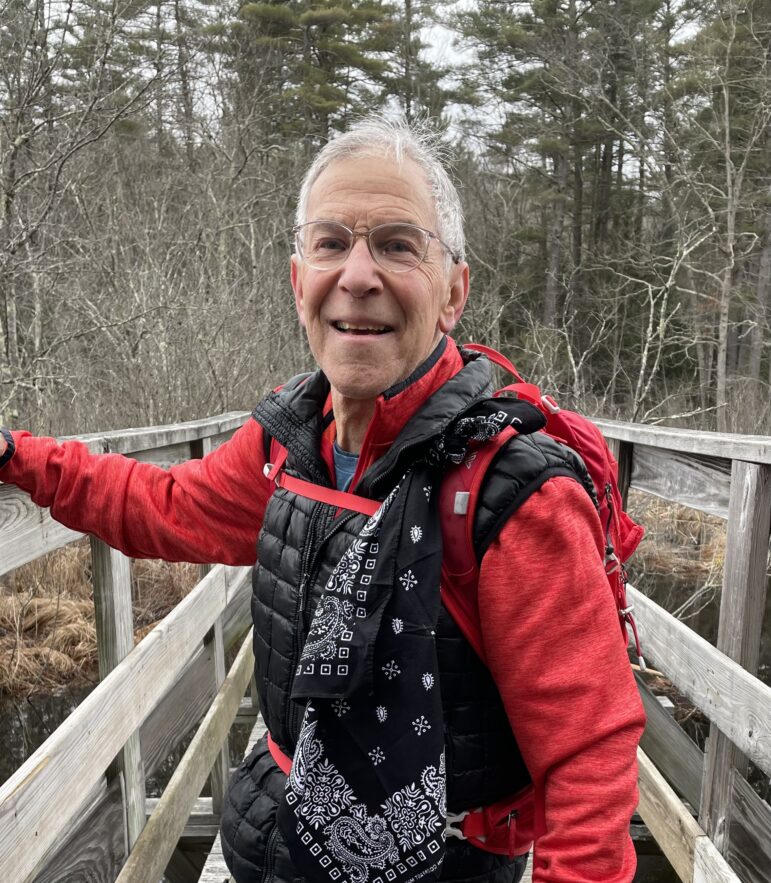By GARRY RAYNO, InDepthNH.orgnDepthNH
CONCORD — The state should update its statutes on prayer and freedom of religion in public schools to align with court decisions and new guidance from the U.S. Department of Education, one lawmaker said Wednesday.
Another lawmaker wants the legislature to repeal a law passed in 1975 allowing the Lord’s Prayer to be recited in public elementary schools as the House Education Committee grappled with religious issues intersecting public education.
House Education Committee member Rep. Glenn Cordelli, R-Tuftonboro, quoted former U.S. Supreme Court Justice Abe Fortas saying students and teachers do not “shed their constitutional rights to freedom of speech or expression at the schoolhouse gate.”
“The law is 50 years old and needs updating,” Cordelli told the committee. “Students and teachers have a right to religious activity or expression before, during or after the school day.”
They have the same rights as teachers and students who engage in non-religious activities or expression, he said.
House Bill 1334 seeks to clarify what teachers, other school employees and students may do in “leveling the playing field” with non-religious activities.
“Schools would not be able to discriminate against religious organizations,” Cordelli said. If a non-religious organization receives money for advertising or mailings, so should a religious organization, he said.
Under the bill, a moment of silence would be required at every school, school districts are prohibited from interfering with teacher and student rights to pray on school grounds, and it allows for religious instruction and activities on school grounds as well as student-organized religious activities and clubs.
Much of the bill’s language reflects the new U.S. Department of Education guidance issued a week-and-a-half ago, Cordelli said.
Committee Vice Chair Rep. David Luneau, D-Hopkinton, questioned if the department’s information was guidance or “you have to do this is you want federal money.”
If all schools have to comply with the federal guidance, “why do we need (HB) 1334,” Luneau asked.
The current statutes are problematic constitutionally, Cordelli said, written 50 years ago and need updating.
Cordelli was questioned about a section of his bill requiring school districts to give religious clubs or organizations the same access to “facilities, funding and other privileges or benefits available to all student groups on an equal basis.”
Rep. Robert Elliott, R-Salem, asked if there were any limits on what the funding level would be for religious clubs. Cordelli said whatever funding was available to other non-religious clubs would have to be available to religious clubs.
Rep. Stephen Woodcock, D-Center Conway, said a robotics club with 87 students may receive $7,000, so would the same level of funding have to be available to a religious club?
Cordelli said he did not believe the two clubs would have to get an equal amount of money available due to size.
Rep. Rick Ladd, R-Haverhill, said speaking as a former school principal, if he were approached by a teacher or a volunteer about establishing a religious club, the first question he would ask is what are the activities and the materials to be used.
“I have concerns. As a principal I am responsible for the safety and well-being of all the students in my school,” Ladd said. “There are extremist groups out there and how am I going to protect my kids?”
Cordelli said he did not see a problem if the material and activities for all groups and organizations are reviewed in the same way.
Rep. Linda Tanner, D-Sunapee, asked if the religious clubs would be open to all students as other groups are, and Cordelli did not believe that would be an issue.
She said what if a Jewish teacher is asked to lead a Baha’i faith group, and the Baha’i leaders decide he should not lead the group and want him removed.
Cordelli said the leaders should certainly have the right to go to the administration and raise that question.
Under the bill, school districts have to authorize a “moment of silence” at some point during the school day. Students would be allowed to engage with silent activities that do not interfere or impede other students.
Cordelli said the moment of silence would not be prayer time or the promotion of a specific religion, but a student’s choice.
The moment of silence was supported by Rabbi Levi Krinsky of Manchester, who said the moment of silence allows students to spend time reflecting in a positive way often on issues recommended by their parents, but something bigger than themselves. “It speaks to their place on earth,” he told the committee.
The moment of silence is a catalyst for good and helps put students on the best path for success, he said.
“What is going on in our schools today is awful,” Krinsky said. “Doing
nothing is not an option.”
Lord’s Prayer
Rep. Amanda Bouldin, D-Manchester, said the law allowing the Lord’s Prayer in elementary schools is not followed in any school she is aware of in New Hampshire because educators believe if the prayer were led by a teacher, the school would be legally challenged immediately.
She explained the law’s genesis beginning in 1973. A Supreme Court advisory opinion said it would be unconstitutional and suggested a voluntary moment of silence and the bill was tabled.
But in 1975 the law was passed anyway although it is the same language the court said was unconstitutional, Bouldin said.
She told the committee the law says the Lord’s Prayer was recited by the Pilgrims, but they objected to standardized prayers and never recited it.
“One of the reasons the Pilgrims came to the New World was to be free of the (standardized) book of prayer,” Bouldin said. “They felt it was idolatry and wanted to be free to pray as they wished.”
“It’s fictitious. It’s unconstitutional. It’s unused and it’s unnecessary,”
Bouldin said. “The only way to deal with it is to repeal it.”
Shannon McGinley of Cornerstone Action opposed House Bill 1306, saying she was concerned about the first amendment issue guaranteeing freedom of religious expression and also her sense it had animosity toward religion.
“This bill raises more concerns than it answers,” McGinley said, “so we
do not support it.”
The committee did not make an immediate recommendation on either bill.
Garry Rayno may be reached at garry.rayno@yahoo.com





